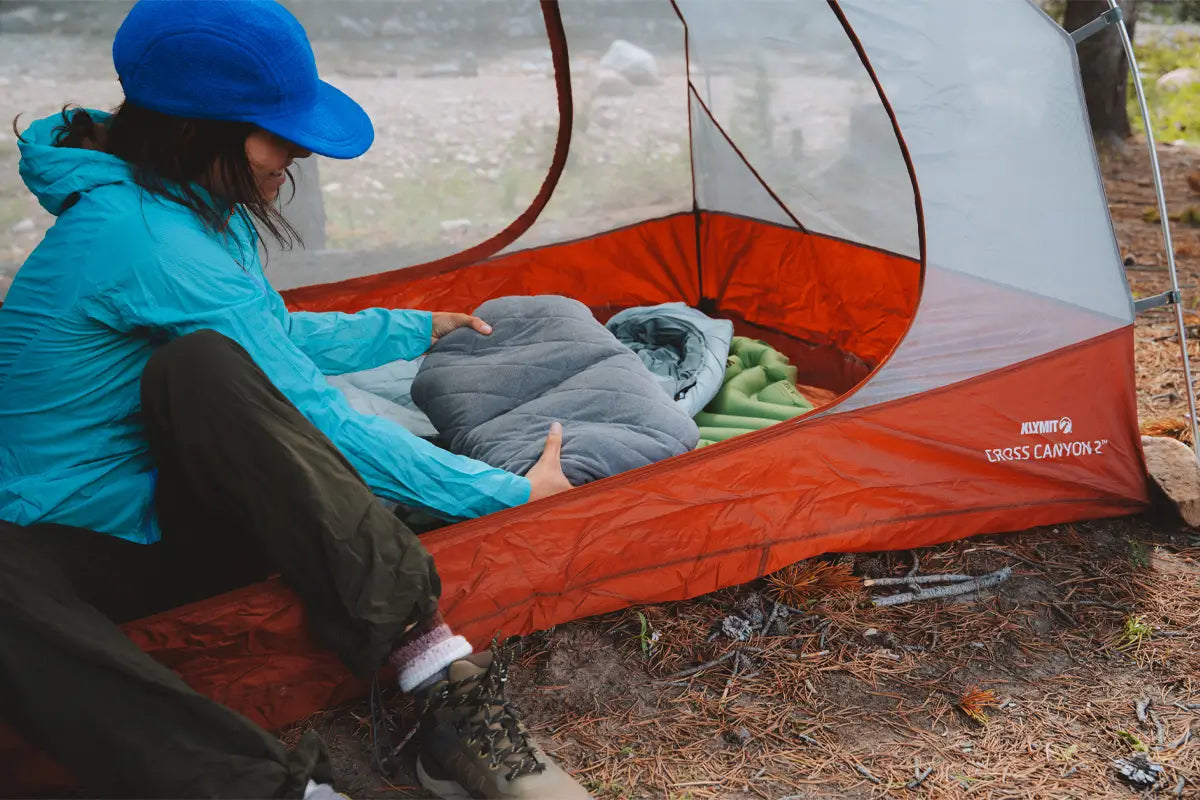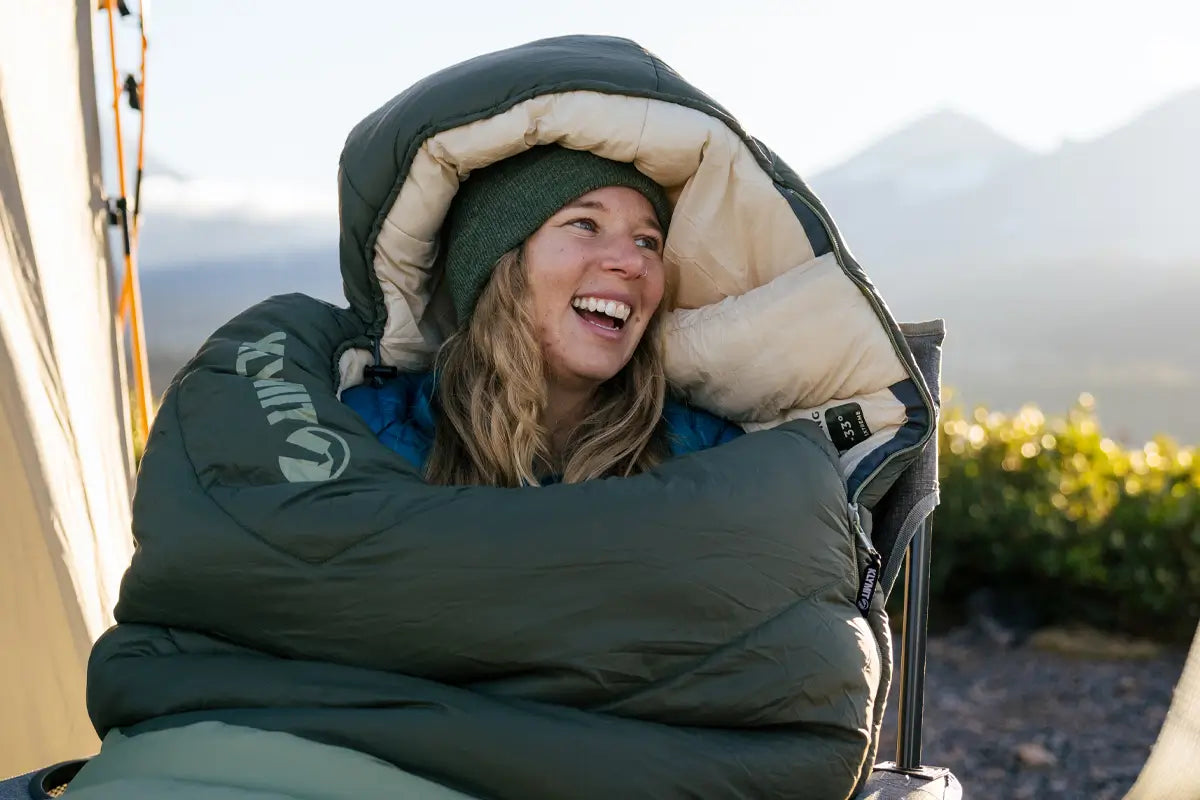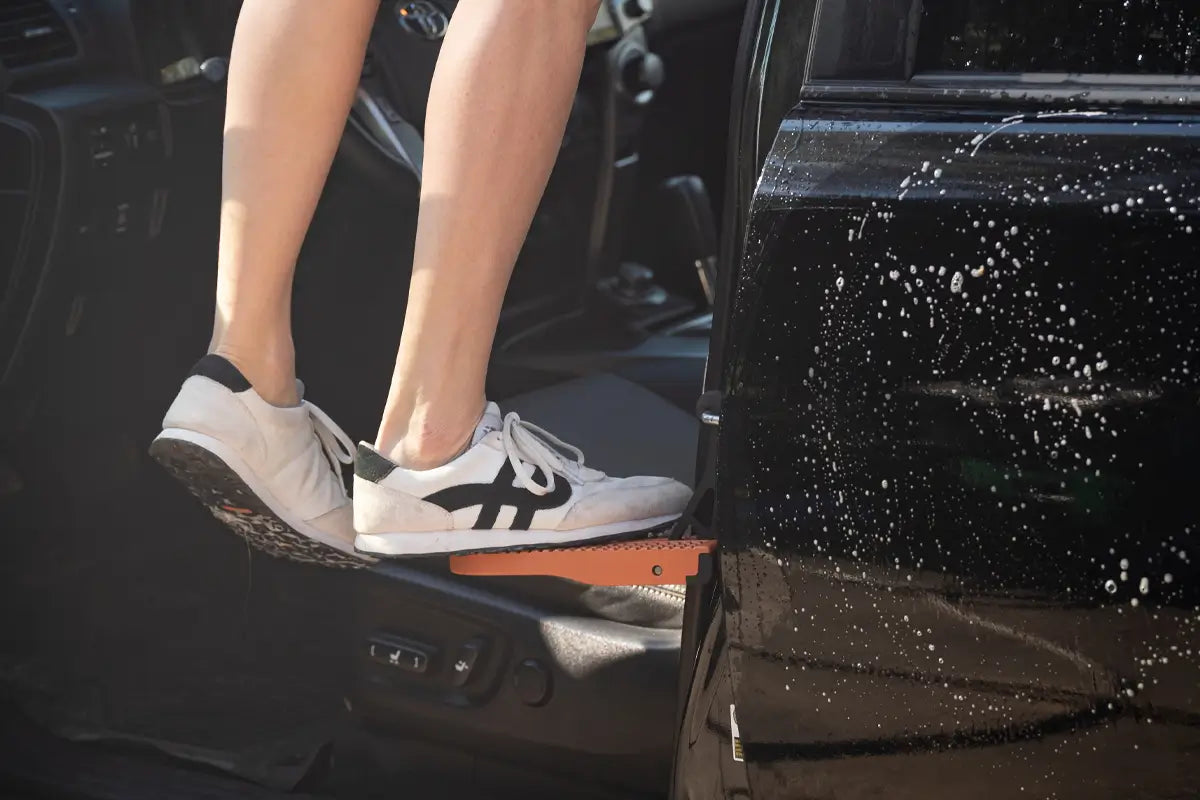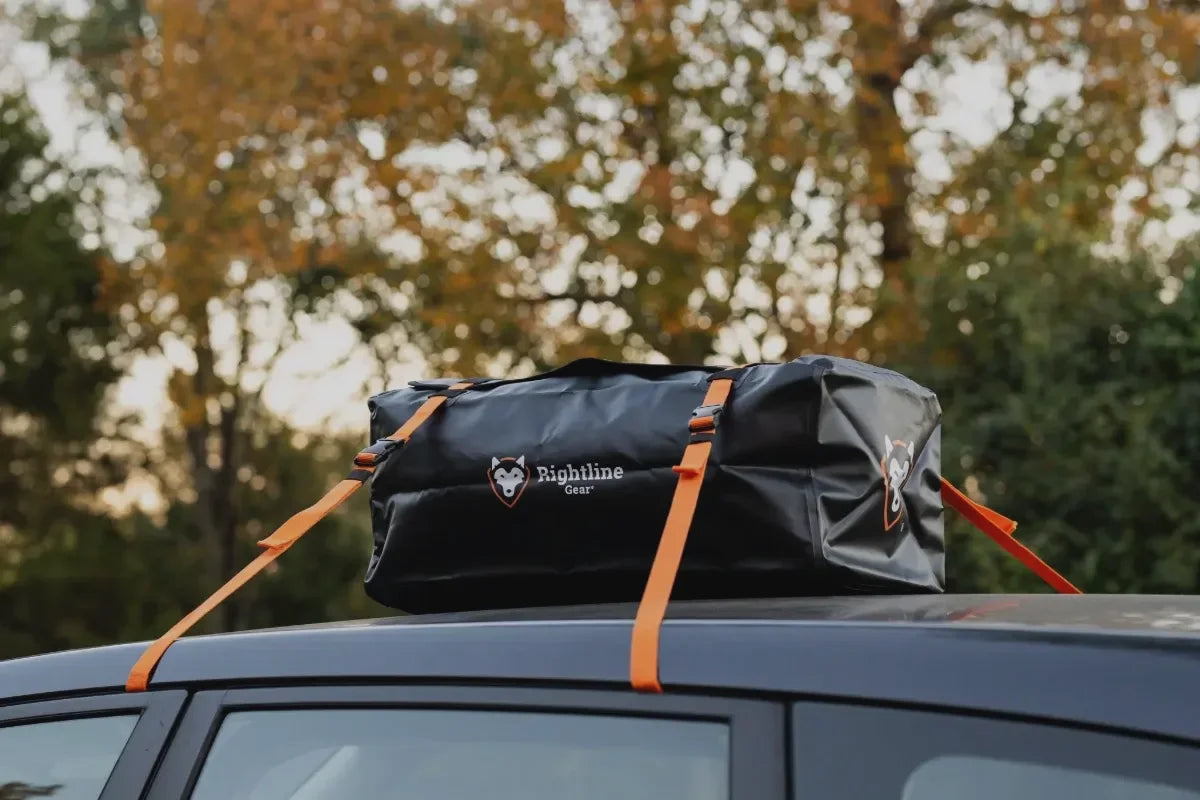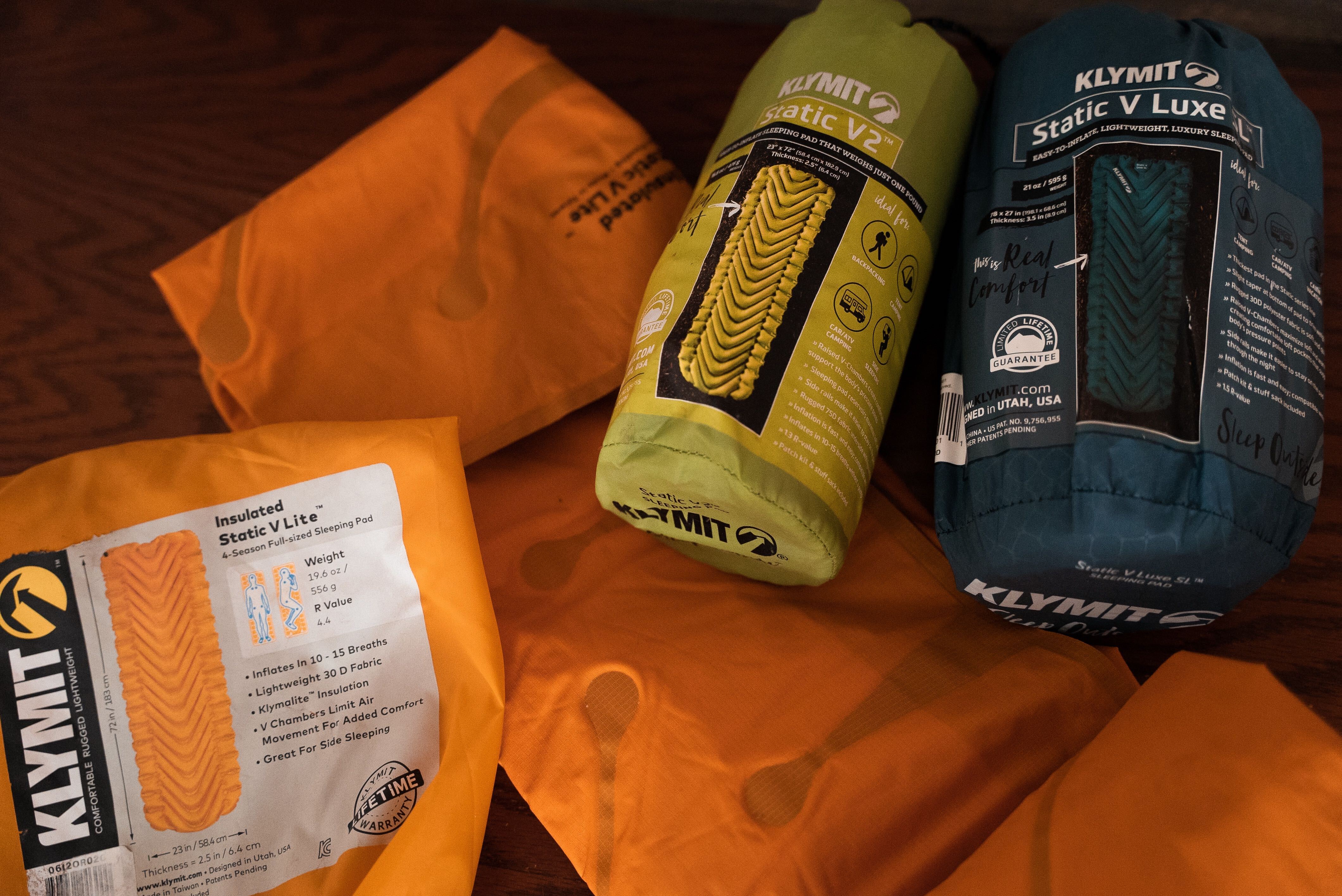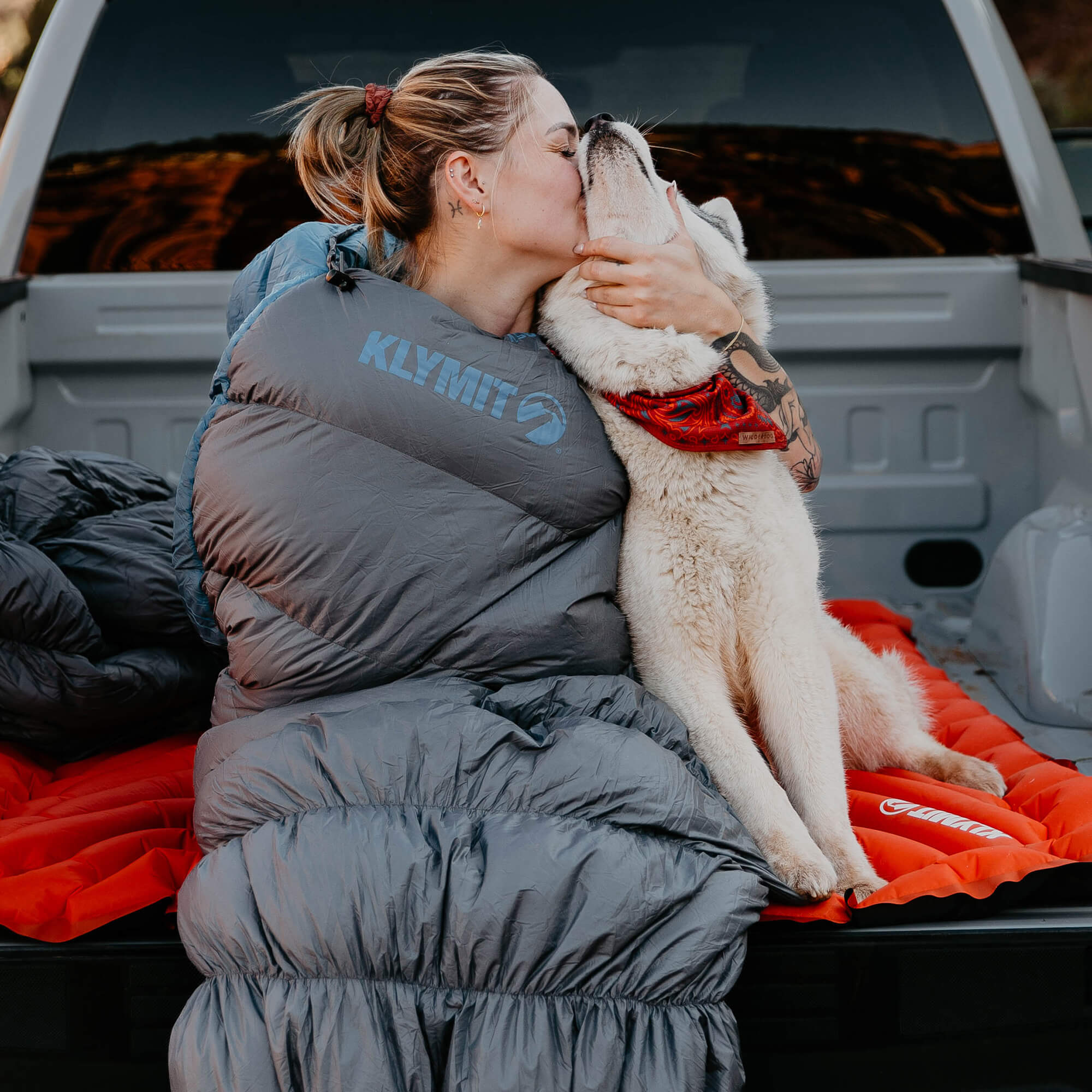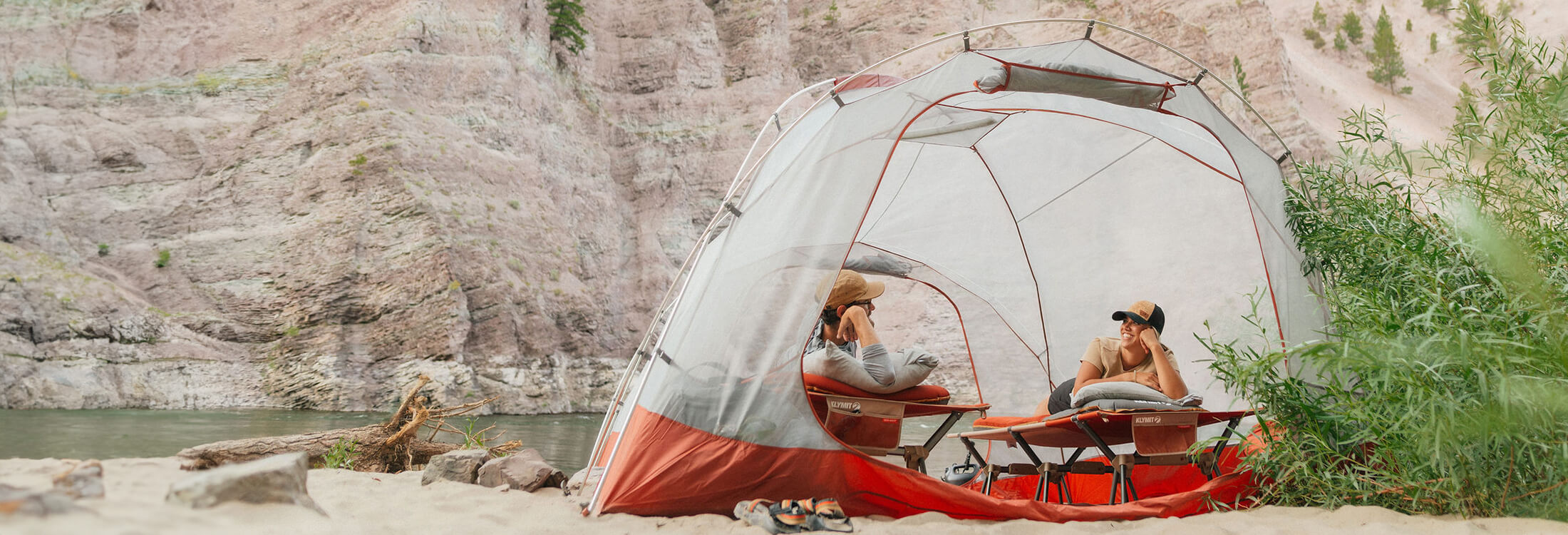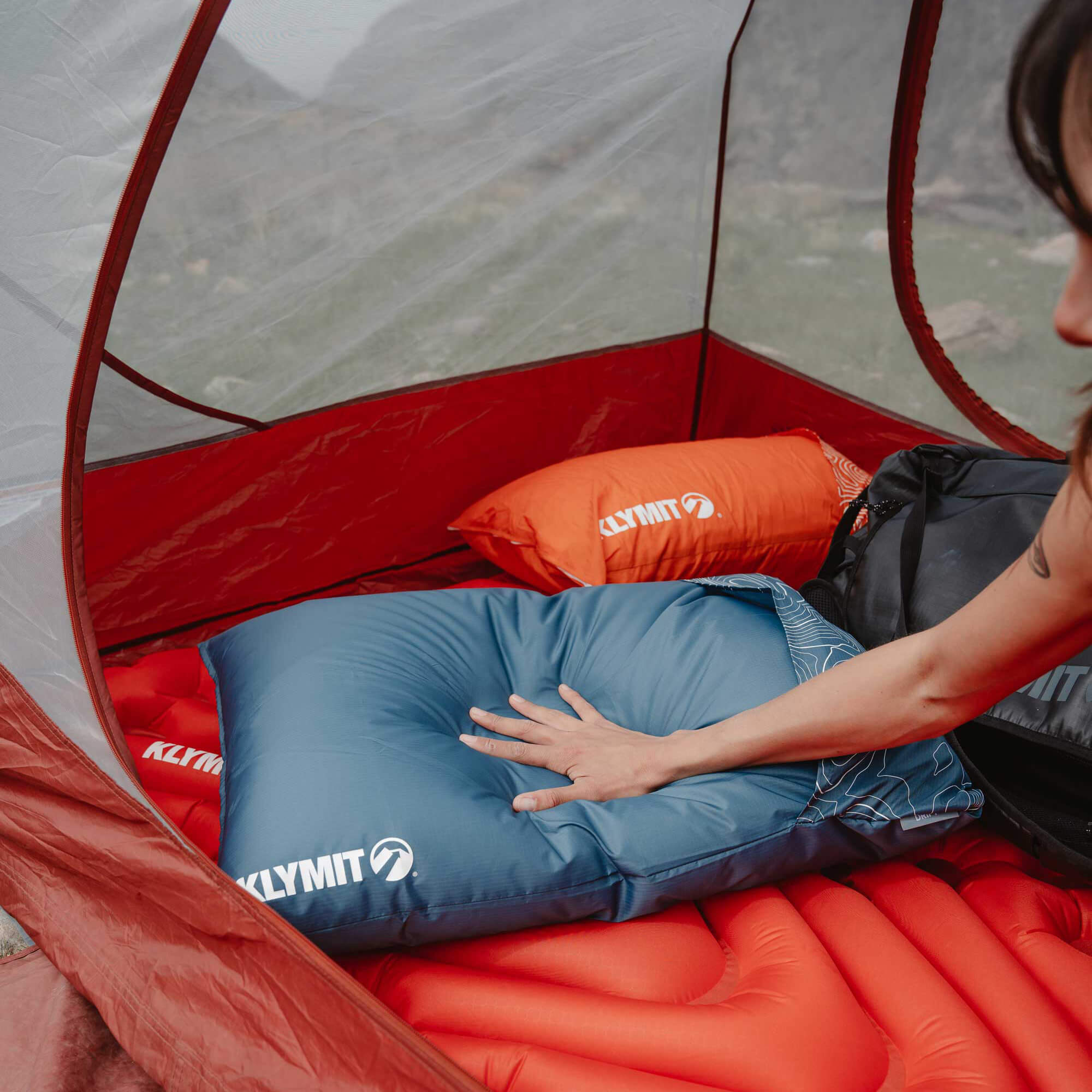The temperatures are dropping and it’s time to put away the summer camp gear. Properly storing your gear ensures your gear is clean and ready to go next spring. We’ve put together a list of tips and best practices for properly storing your gear this winter.

Empty Bags
If you have a lot of duffel bags and backpacks, it’s a good idea to go through every single pocket and zippered storage area.
Throw away your granola bar wrappers, cans, bottles, or any other trash to ensure that it doesn’t sit in a closed bag all winter. You also may find pieces of gear that you’ve been missing like keys, cards, and other items that may have disappeared throughout the season.
Wipe and Dry Sleeping Pads
Pads perform best when cleaned regularly. Before storing the pad away for the winter, it’s a good idea to wipe it down thoroughly.
For particularly dirty pads mix 2 cups of warm water with 1 tablespoon of baking soda and wipe down with a washcloth. Rinse well. DO NOT use any detergents, even natural detergents. DO NOT put in a washing machine.
Hang the pad out upside down overnight with the vent open to allow the pad to dry completely before rolling it up and rolling it away.
Wash and Dry Sleeping Bags
Sleeping bags, especially down-filled bags can wear down when cleaned frequently. However, it’s a good idea to clean it after the season.
We recommend washing a down bag in a front-loading washer. Never use an agitator-style machine as the motion can damage the stitching and feathers. Make sure to wash your sleeping bag on the gentle cycle in cool water with a down specific soap. To dry your down sleeping bag, set your dryer on the no heat setting and check often. If it is too hot you will run the risk of melting the fabric on your sleeping bag. The fluff or tumble setting without heat is the safest way to dry your bag. When the bag is nearly dry, add two or three clean tennis balls or a pair of clean sneakers to the dryer. This will help break up any clumps in the bag and will help to restore the loft. You will know your bag is fully dry when the musty smell is gone and no clumps of down remain.
Make sure your bag is completely dry, and store in a mesh large storage bag. This will preserve the fluffiness of the down feathers.

Test Propane/Butane
Trying to cook food and having your propane go out five minutes in is a good way to ruin a camping trip.
Make sure that your small propane canister is full by placing it in a large bucket filled with water. Put the tank in right-side up. Note where the waterline is on the canister, and it closely corresponds with how much propane is left inside. The more the tank floats, the less it has inside.
Throw away completely empty propane tanks, and mark the waterlines on the half empty ones to remember next time you are packing your camping kitchen.
Deep Clean and Stove Kitchen Items
You wouldn’t want to cook in your house kitchen with a dusty stove, and camping stoves shouldn’t be any different. While it usually gets quite dirty out camping, that doesn’t mean you should just leave it in storage in that condition. It is good practice to wipe down surfaces after each camping trip and it's extremely important to deep clean your stoves, pots, pans, bowls, and utensils before storing them away for the off-season.
Soak dishes in hot water before hand washing them to make sure they are sparkling clean.
In addition, use hefty cleaning supplies like Bar Keeper’s Friend to get the gunk off of your camp stove. While it does take a little bit of time, it will be well worth it to start fresh once next camping season comes around.
We know it’s a chore to properly clean items before storage, but it’s a great idea to keep your gear in it’s best condition. What steps do you take to clean your camping gear before the winter?




